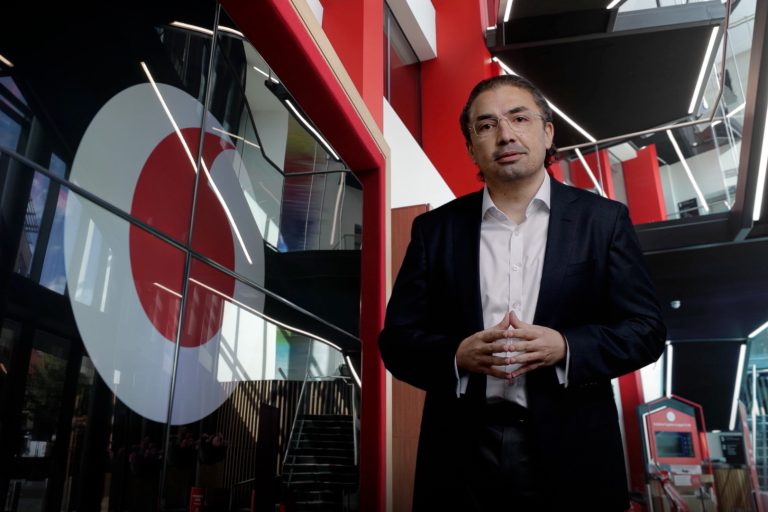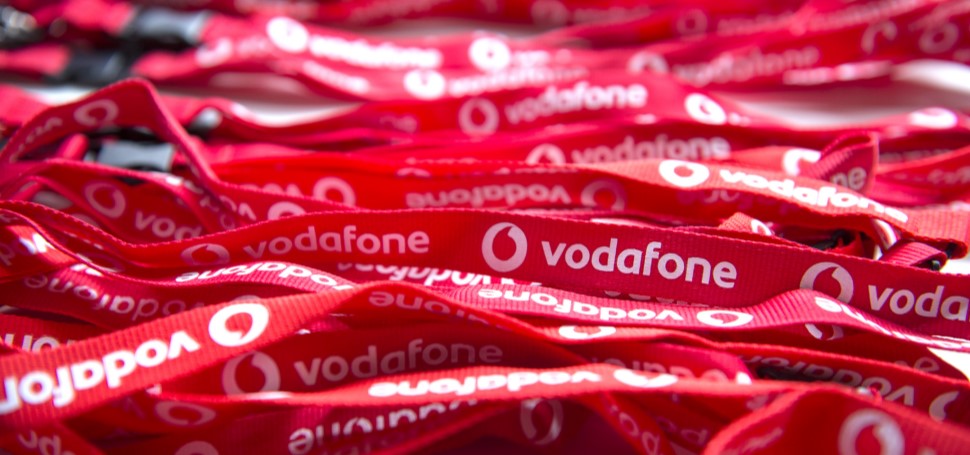Vodafone puts social and environmental responsibilities at heart of new strategy
New Vodafone CEO Ahmed Essam wants company to have a sense of "purpose" beyond connectivity

New Vodafone UK CEO Ahmed Essam has pledged to give the company a sense of purpose that extends beyond the mere provision of connectivity services, reflecting the elevated role of connectivity in society in a post-Covid world.
Speaking at his first major event since replacing Nick Jeffery as UK chief executive in February 2021, Essam praised the achievements of his predecessor, who is credited with overseeing a turnaround at the company through network investments, new propositions, and improvements to customer service.
The former Vodafone Group Chief Commercial Operations and Strategy Officer said he was joining a “resurgent” company and had inherited a platform that would allow the company to react to the changing needs of customers and businesses in an increasingly digital world.
- These are the best business SIM-only deals around today
- And the best business broadband deals
- Here are the best business mobile phone deals
Sense of purpose
During the pandemic, consumers and businesses became increasingly reliant on mobile and broadband services for work, education, entertainment, and communication.
However, Essam also acknowledged that millions of people suffered from “digital poverty” because they could not afford adequate connectivity or lacked the necessary skills, while businesses that needed to digitise were still struggling with the economic impact of lockdown.
Under Essam, Vodafone is keen to marry what it considers to be a market-leading network and service portfolio with the social and environmental responsibilities that come with providing what is increasingly viewed as an essential service.
It plans to deliver this sense of purpose through social initiatives that aim to narrow the digital divide, support packages for businesses, and through new products and services that offer consumers value without compromise.
Are you a pro? Subscribe to our newsletter
Sign up to the TechRadar Pro newsletter to get all the top news, opinion, features and guidance your business needs to succeed!
“It’s about building a digital future for everyone that’s inclusive and fair,” Essam said. “It’s what our customers want. No one should be left behind and everyone at Vodafone in every area of the business is focused on these goals.
“Vodafone has the people, technology, scale and strategy [to make a difference].”
“The UK is a very competitive market, and we fight for every new customer and for the loyalty of every customer we have. I want to deliver the best products and services and to build a better, sustainable inclusive future.”

Social responsibility
During the pandemic, Vodafone offered free connectivity and devices to disadvantaged households. Now it has committed to connect an additional one million people to the Internet by 2022 through digital skills training and various initiatives – the most significant of which is the ‘Buy One, Give One’.
For every new and existing subscriber to the ‘Vodafone Together’ service, the company will provide a person in need with 20GB of data plus free calls and texts each month for up to a year. These SIMs will be distributed through the Trussell Trust’s food bank network to ensure those most in need benefit.
The venture has the support of England and Lions rugby union star Maro Itjoe, who has previously campaigned to ensure schoolchildren have access the necessary technology for remote learning.
“Vodafone’s work during the pandemic stood it apart – and it’s fantastic to see this work continuing with a long-term commitment to make this change for good and fix digital poverty together,” he said.
Meanwhile, Vodafone is building on its offer of free business broadband for a year with new flexible products that ensure cost isn’t an issue for organisations whose financial situation is still precarious after the past 18 months.
“Some small businesses aren’t thinking about transformation at the moment,” said Business Director Anne Sheehan. “They’re just thinking about survival. If these businesses are in trouble, then its bad news for the economy because they’re an engine for jobs.”
On the consumer side, Vodafone has tailored its portfolio to meet changing expectations from customers who are now more reliant on their broadband and mobile providers and less tolerant of poor service.
Vodafone’s play for this market is focused on flexibility and providing value for money without cutting corners. It now offers converged products that ensure customers always have a reliable Internet connection, includes 5G as standard in mobile plans, and offers limitless data on certain tariffs. It now claims to have 2.6 million ‘5G-ready’ customers 1.7 million on unlimited subscribers.
The latest product of this drive is the ‘Vodafone Evo’ tariff that lets customers decide on the length of their contract and cost of their device and afford the ability to upgrade at any time after 12 months.
“We really don’t think there’s anything like it on the market,” declared Vodafone Consumer Director Max Taylor, when asked about the similarities between Evo and O2 Refresh. “This combination of device financing, trade in and flexible upgrades sets a standard or others to follow.”
Environmental considerations
The final element of Vodafone’s new mission statement is environmental. As the world becomes more connected and bandwidth-intensive applications increase traffic, the power used by communications infrastructure to transmit and process data increases significantly.
Vodafone’s network connects as many as 16 million people at any one time and consumes 560 gigawatt hours of energy each year. Controlling this level of consumption is not only cost-effective, it will also have a positive impact on Vodafone’s appeal as an employer and service provider.
Sustainability is an increasingly important consideration for people when applying for jobs or taking out a contract and in a highly competitive marketplace where rivals are also making environmental pledges, Vodafone has committed to eliminate all of its carbon emissions by 2027.
“We have to look at every aspect of our network and technology estate. Every decision we make can reduce our impact,” said Network and Development Director Andrea Dona. “[Energy consumption] is the single biggest impact we make on the environment.”
A range of measures will be employed to reduce emissions. AI will be used to monitor base stations and drones used to survey potential sites, avoiding the need to send engineers to sites, and Vodafone’s fleet will be electric by 2027. Renewable energy will be used across Vodafone’s European network and 100% of network equipment will eventually be recycled or reused.
Vodafone also believes OpenRAN will make its network more environmentally friendly because the ability to mix and match equipment from each vendor will allow it to monitor consumption on a granular basis.
The past 18 months have been challenging for everyone, but the telecoms industry has managed to improve its reputation significantly. Networks have remained resilient, operators have ensured everyone has remained connected, and the shift to digital has allowed many areas of everyday life to continue – albeit in a different fashion.
“As an industry, we’ve stepped up,” he said in response to a question from TechRadar Pro. “If we had digital ambitions before the pandemic, these have accelerated by three to five years. The scale and investment of the Vodafone Group is key to meet the demand that is there. Connectivity is no longer optional.”
- Here's everything you need to know about Vodafone 5G deals and pricing
Steve McCaskill is TechRadar Pro's resident mobile industry expert, covering all aspects of the UK and global news, from operators to service providers and everything in between. He is a former editor of Silicon UK and journalist with over a decade's experience in the technology industry, writing about technology, in particular, telecoms, mobile and sports tech, sports, video games and media.